The Shih-Poo is a charming hybrid dog breed, a cross between a Shih Tzu and a Toy Poodle. They’re adorable and affectionate little dogs with a charming wavy coat and sweet expressions. Wile they’re not recognized by the American Kennel Club, they’ve gained popularity for their engaging personalities and adaptability.
Shih-Poos are great for first-time dog owners due to their manageable size and eagerness to please. Their coat can vary, taking after either the Shih Tzu’s straight locks or the Poodle’s curly fur. Regardless, regular brushing is critical to maintaining their coat.
Shih-Poos can inherit health issues from both Shih Tzus and Toy Poodles. Common health concerns include patellar luxation, ear infections, and eye problems.
Positive reinforcement is key in dog training, any dog, but Shih-Poos, being sensitive, intelligent, and adaptable, respond best to gentle, positive, and consistent training.
Given their small size and easy-going attitude, this breed can adapt well to living in apartments, but they also enjoy outdoor activities and can participate in dog sports.
The information provided herein is for informational purposes only. Please refer to our disclaimer for more details..
Shighpoo Origins
This Shih Tzu
The Shih Tzu originated from China and has been valued for centuries for its companionship and beautiful coat. For as long back as we know about this breed, they’ve been cherished companions, not workers.
Shih Tzus are characterized by their luxurious, flowing coat, which can be either wavy or straight. They’re known for being playful, friendly, and eager to please, making them excellent companions for various households. Despite their small stature, they’re robust and thrive on plenty of playtime and interaction with their owners.
Health-wise, Shih Tzus are generally hardy, but they can be prone to certain health issues like patellar luxation and respiratory problems
The Poodle
Poodles were originally bred as working dogs in Germany, although they’re often thought of as from froo dogs from France. They’re an incredibly versatile breed, able to do everything from hunt to service and therapy work to circus tricks.
While the Poodle breed includes Standard, Miniature, and Toy sizes, it is typically the Toy or Miniature Poodle that is used in breeding the Shih-Poo to keep a small, predictable size in this designer breed.
Poodles are well known for their tightly curled low-shed coats, which grow continuously and need regular brushing and trimming to keep from matting.
Poodles are known for being loyal, sensitive, and highly trainable. They’re highly adaptable to live anywhere, but they thrive in environments in which they get plenty of mental and physical workouts.
Poodles are generally healthy but can be predisposed to hip dysplasia and eye disorders. Toy and mini Poodles can also experience luxating patella.
The Shihpoo
Health
While Shihpoos are generally very healthy, there are some genetic health conditions to keep a lookout for:
- Brachycephalic Airway Syndrome:
Due to their short noses, Shih Tzus often suffer from respiratory problems. Shih-Poos may inherit this condition, depending on the shape of their face. Dogs with short noses may need to stay cool, air-conditioned, and avoid excessive exercise. - Dental Problems:
Small dogs often have dental issues due to crowded teeth. Regular dental check-ups and oral hygiene are vital for a Shih-Poo’s health. - Progressive Retinal Atrophy (PRA):
This eye condition can lead to blindness. Responsible breeders should test for this condition to ensure the health of their puppies. - Patellar Luxation:
A common issue in small dogs is where the kneecap slips out of place. It can be painful and may require surgical intervention. - Von Willebrand’s Disease:
A blood clotting disorder that can be found in both Poodles and Shih Tzus.
Personality
The Shih-Poos are friendly and affectionate. They’re excellent companions for a wide range of families and typically get along well with everyone they meet. They inherit the fearless, playful lap of loyalty disposition of the Shih Tzu with the intelligent, eager-to-please working attitude of the Poodle.
Shih-Poos are often great with children and other pets, and their size makes them suitable for both apartment living and houses with more space. However, keep in mind that this breed tends to be very bold, especially if it takes after the Shih Tzu in it’s parentage. It’s important that children and other pets play gently with this tiny breed.
Size and Body Type
Shih-Poos are generally small dogs, though their exact size can vary depending on whether a toy or miniature Poodle was used in the breeding.
The body type of a Shih-Poo varies between the slightly sturdier build of the Shih Tzu or the more delicate frame of the Poodle. Regardless, this little dog often has a lot more get up and go than people expect. You’ll likely find that you can take your Shihpoo anywhere, and that they enjoy physical activities and can even excel in canine sports like agility.
Grooming
The coat varies greatly depending on your Shih Poo’s genetic makeup. Some inherit the dense, tightly curled coat of the Poodle, while others may have the softer, straighter coat of the Shih Tzu. Most Shihpoos tend to fall between, with curly or wavy coats that are endlessly endearing.
Regular and thorough grooming is crucial to keep your Shih-Poo clean, dry, and adorable.
Shih-Poos require brushing several times a week to prevent matting and tangles and trims every month or so to keep that coat in check. Both parent breeds have continuously growing coats, so prepare to hire a groomer or give lots of haircuts yourself.
Bathing your Shih-Poo is important if they get dirty, but don’t do it too often, as it can strip natural oils from their skin and lead to dryness or irritation. Depending on their activity level and coat type, a bath once every three to four weeks is usually fine.
Care should be taken to clean the eye area thoroughly when grooming a Shih-Poo. This should be done every time you brush them, if not more often. Tear staining is a common issue, particularly in lighter-colored dogs. Regular cleaning keeps your dog looking great and can avoid many health issues stemming from moisture and debris buildup around the delicate eye area.
Regular nail trimming and ear cleaning are also vital parts of grooming your Shih-Poo. Long nails are common in small dogs who get most of their exercise inside. However, they can cause discomfort and even lead to joint health problems.
Exercise and Activity Level
Shih-Poos are not typically as high-energy as some larger breeds. You definitely won’t notice all that energy as much in this little dog. However, Shihpoos are playful and can be downright mischievous if you don’t entertain them. While outside exercise isn’t always a must, you’ll need to set aside time to play with your dog.
Shihpoos enjoy being active and are happy to go anywhere and do anything with you. However, they don’t usually require extensive exercise regimes. About 30 minutes of exercise a day (split into shorter sessions throughout the day to keep them engaged and prevent boredom) should be sufficient for most Shih-Poos. It may be necessary to carry your Shihpoo if you’re very active, such as long hikes, especially if they have a shorter snout and may have trouble breathing well.
Socialization and Training
When you choose a Shihpoo, whether it’s a puppy or an adult dog, it’s important to start socialization as early as possible. That means gently exposing your dog to various people, animals, environments, and experiences in a positive and controlled manner.
While this breed is naturally pretty friendly, they can be a bit reserved from the Poodle side. Good socialization helps ensure that your Shihpoo grows into a well-adjusted adult dog, comfortable in different situations and less prone to fear or aggression.
Shihpoos are intelligent dogs that inherit their eagerness to please and learn from both parent breeds. Positive reinforcement techniques using praise, treats, and especially play are highly effective with this breed. Shihpoos are sensitive and respond best to gentle, consistent training methods.
Pros of Owning a Shihpoo:
- Adorable and Engaging:
Let’s just say it: a highlight of this dog’s breed profile simply reads “incredibly cute”. They don’t just look cute, they act cute. - Small and Adaptable:
These little dogs can live just about anywhere, from the farm to a tiny apartment. They even do great on boats and in RVs. Their easygoing attitude makes them easy to take along for the ride. - Friendly Disposition:
Shihpoos are typically friendly and affectionate, getting along well with other dogs, people, and animals of all kinds. - Intelligence:
Thanks to the Poodle lineage, Shihpoos are intelligent and eager to please, while the Shih Tzu diva in them makes them fun and engaging to train. Don’t think a dog can be a diva? Check out this Shih Tzu. - Low shed:
Both parent breeds have continuously growing hair that doesn’t shed much, so expect the puppies to do the same.
Cons of Owning a Shihpoo:
- Grooming Needs:
Shihpoos require regular grooming, which is either time-consuming or costly, depending on whether you do it yourself or hire a groomer. - Health Concerns:
This mixed breed dog can inherit health issues from either parent, especially if you don’t get a dog from a breeder who has done health testing to ensure the parents are healthy. - Training and Socialization:
Shihpoos need consistent training and socialization, or they can become demanding and nervous. - Variability in Traits:
While some aspects of this dog, such as low-shed coat and small size, are pretty much guaranteed as long as the parents are purebred, a mixed breed, there can be variability in traits like confidence vs sensitivity and trainability vs independence in any given Shihpoo puppy. - Not Recognized by Major Kennel Clubs:
The Shihpoo is not officially recognized as a breed by the American Kennel Club, and most Shihpoos are first generation, meaning bred from a Poodle and Shih Tzu, so you won’t have much opportunity to breed or show your dog. - Potential for Separation Anxiety:
Shihpoos thrive on companionship, and they don’t like to be alone. Some Shihpoos may develop separation anxiety if left alone for extended periods.
Finding a Shihpoo Breeder
Look for breeders who have conducted genetic health testing on both the Shih Tzu and Poodle parents, as there are genetic conditions common to both breeds, and any individual dog may inherit conditions from either parent. There’s no substitute for genetic health testing.
It’s best to visit the breeder’s facility, if possible, to see the conditions in which the puppies and adult dogs are living. Finally, you want a breeder who doesn’t just want you to buy a puppy. Select a breeder who wants to discuss the breed characteristics, offer guidance on Shihpoo grooming, and provide post-adoption support to make sure you’re a good fit for their treasured puppy.
Cute puppies sell, so there are a lot of irresponsible breeders when it comes to adorable Shih-Poo puppies. Choose a reputable breeder. It will help you avoid many health problems.
Alternatively, consider adopting from a shelter or rescue group. Adorable Shih Tzu and toy Poodle mixes of all kinds find themselves homeless for no fault of their own.
Ideal Family for a Shihpoo
Shihpoos are adaptable and can thrive in various living environments, from apartments to farms to RVs and boats. The ideal family for a Shihpoo is one that can provide love, attention, and regular grooming to keep their coat clean and dry.
Families should also be willing to join in consistent training and socialization, as Shihpoos are intelligent and respond well to positive reinforcement. They are great for families with children due to their fearless, playful nature and moderate exercise needs.
However, it’s important to ensure both kids and Shih Poos are careful, as this small dog can be unintentionally injured.
Want a Shihpoo?
The Shih-Poo dog breed is stunningly adorable, endlessly charming, and fits into most lives without a hitch, provided you have time and money for grooming, training, socialization, and medical care.
This is a great dog if you’d rather not have a lot of loose fur everywhere or you’d prefer a game of tug from the couch to a long walk. It’s also the perfect dog if your living situation changes or you like to travel. All in all, the Shihpoo is a lovely little dog with a great attitude, sure to bring lots of fun and love to your family.
462views
Share on FacebookExplore more of these tags
"Shih-poo" isn't a breed. It's a mutt. A mixed-breed dog. NOT a "breed". Therefore, there is NO established, standard "temperament" or appearance that puppies/dogs of this mix will have. Even puppies in the same LITTER will differ in appearance, as they are mixed breed dogs. It's really important to keep in mind that while dogs like "Havapoos" and "Cavapoos" and "Aussiedoodles" might be adorable (and of course they are all good boys/girls) - these are NOT real "breeds". They are mutts, NOT purebreds. If someone is trying to say they are a "breeder" of one of these mixed-breeds and they charge thousands of dollars for a puppy, just keep in mind - you're buying a mutt. SO many dogs - mixed-breeds AND purebreds! - are languishing in shelters in need of a home. If you want a dog/puppy, don't spend thousands of dollars purchasing a mutt.
"Shih-poo" isn't a breed. It's a mutt. A mixed-breed dog. NOT a "breed". Therefore, there is NO established, standard "temperament" or appearance that puppies/dogs of this mix will have. Even puppies in the same LITTER will differ in appearance, as they are mixed breed dogs. It's really important to keep in mind that while dogs like "Havapoos" and "Cavapoos" and "Aussiedoodles" might be adorable (and of course they are all good boys/girls) - these are NOT real "breeds". They are mutts, NOT purebreds. If someone is trying to say they are a "breeder" of one of these mixed-breeds and they charge thousands of dollars for a puppy, just keep in mind - you're buying a mutt. SO many dogs - mixed-breeds AND purebreds! - are languishing in shelters in need of a home. If you want a dog/puppy, don't spend thousands of dollars purchasing a mutt.

 Dark Mode
Dark Mode 

 No fees, cancel anytime
No fees, cancel anytime 


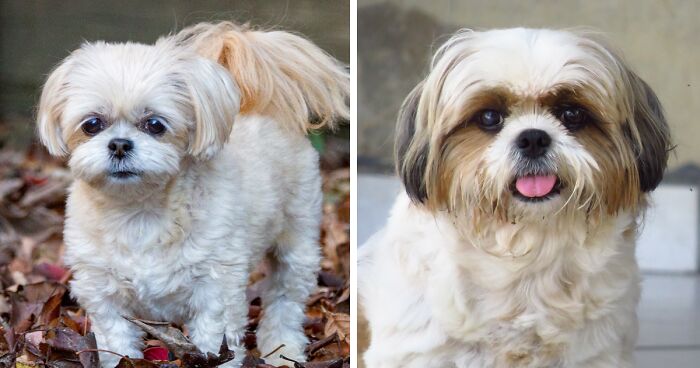
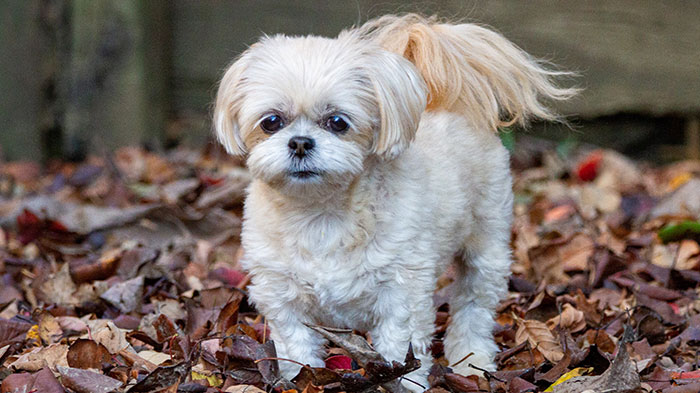 Image credits:
Image credits: 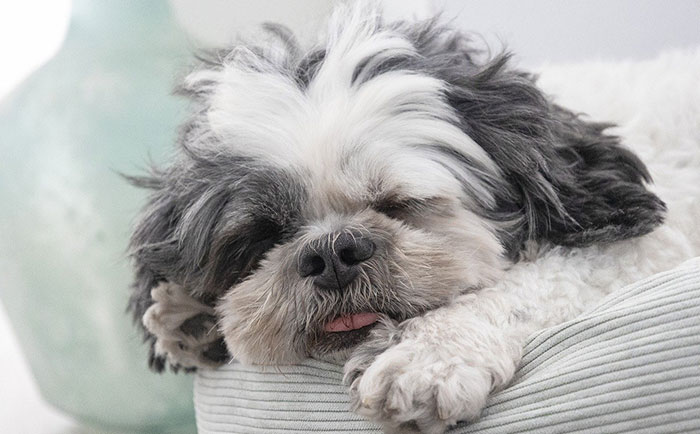 Image credits:
Image credits: 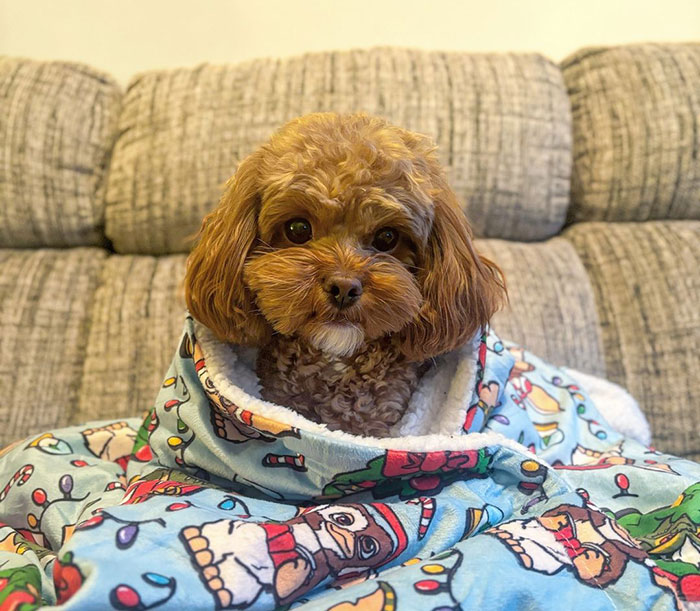 Image credits:
Image credits: 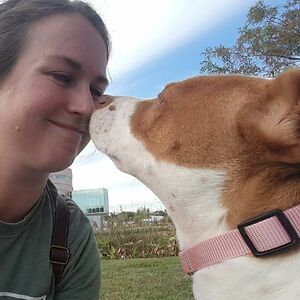











































-1
1